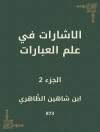Evaluators have always worked in diverse communities, and the programs they evaluate are designed to address often intractable socio-political and economic issues. Evaluations that explicitly aim to be more responsive to culture and cultural context are, however, a more recent phenomenon. In this book, Jill Anne Chouinard and Fiona Cram utilize a conceptual framework that foregrounds culture in social inquiry, and then uses that framework to analyze empirical studies across three distinct cultural domains of evaluation practice (Western, Indigenous and international development).
Culturally Responsive Approaches to Evaluation provide a comparative analysis of these studies and discuss lessons drawn from them in order to help evaluators extend their current thinking and practice. They conclude with an agenda for future research.
Cuprins
List of Appendices, Figures, Tables
About the Authors
Volume Editors’ Introduction
Acknowledgments
Chapter 1 • Introduction
Overall Background to Book
Social Inquiry as a Cultural Product
This Book
Chapter 2 • A Conceptual Framework for Inquiry
Defining Culture
Dimensions of Culture and Cultural Context
Chapter 3 • Methodology and Descriptive Overview of Selected Studies
Description of Studies
Sample Characteristics
Strategy for Analysis
Limitations
Chapter 4 • The Indigenous Context
Overview of Chapter
Description of Sample
Review and Integration of Selected Studies
Critical Discussion and Implications for Practice
Chapter Summary
Extending Inquiry
Chapter 5 • The Western/North American Context
Overview of Chapter
Description of Sample
Review and Integration of Selected Studies
Discussion and Implications
Critical Discussion and Implications for Practice
Chapter Summary
Extending Inquiry
Chapter 6 • The International Development Context
Overview of the Chapter
The International Development Context in Evaluation
Description of Sample
Review and Integration of Selected Studies
Critical Discussion and Implications for Practice
Chapter Summary
Extending Inquiry
Chapter 7 • A Discussion of the Conceptual Framework Across Domains of Practice
The Epistemological Dimension of Cultural Practice
The Ecological Dimension of Cultural Practice
The Methodological Dimension of Cultural Practice
The Political Dimension of Cultural Practice
The Personal Dimension of Cultural Practice
The Relational Dimension of Cultural Practice
The Institutional Dimension of Cultural Practice
The Axiological Dimension of Cultural Practice
The Ontological Dimension of Cultural Practice
Concluding Remarks
Chapter 8 • Concluding Thoughts
References
Appendices
Index
Despre autor
Fiona Cram founded Katoa Ltd in 2003, an indigenous research organisation that undertakes kaupapa Māori (by, for and with the Indigenous peoples of Aotearoa New Zealand) research, evaluation and training. Before establishing Katoa Ltd, she was a Senior Research Fellow and Deputy Director of the International Research Institute for Māori and Indigenous Education at the University of Auckland She is currently Editor-in-Chief of the Aotearoa New Zealand Evaluation Association journal ‘Evaluation Matters – He Take To Te Aromatawai’, published by the New Zealand Council for Educational Research, and has also co-edited a number of research books. She has undertaken projects for a number of organisations, including Te Puni Kokiri (Ministry of Māori Affairs), the Ministry of Health, and Ngati Kahungunu Iwi Inc. Dr Cram’s project work, publications and conference presentations on kaupapa Māori have made significant contribtions to indigenous research and evaluation both in New Zealand and within the international community.












